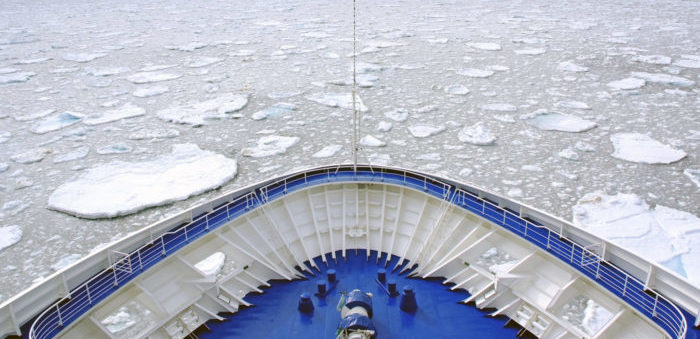During an expedition in the Northern Sea Route, Russian researchers discovered microplastics all along the route, marking the first time ever that samples have been taken of microplastic waste along the route.
As the Russian newspaper Izvestiya reports, during the Transarktika 2019 expedition the Professor Multanovskiy vessel began its journey from Vladivostok on the Pacific Ocean on August 25, sailing through the NSR heading to Murmansk, where it berthed on September 8.
Although in the entire voyage the scientists came across a variety of plastic debris, from plastic bottles to packages, what worried them the most was the findings of microplastics.
The microplastics were discovered both in the Kara Sea and in the Barents sea, highlighting the importance of solving the matter of ocean pollution, as microplastics pose a great threat not only to the ocean but also to the life of it. Recently, the World Health Organization (WHO) called for a further assessment of microplastics in the environment and their potential impacts on human health, asking for reduction in plastic pollution to benefit the environment and reduce human exposure.
[smlsubform prepend=”GET THE SAFETY4SEA IN YOUR INBOX!” showname=false emailtxt=”” emailholder=”Enter your email address” showsubmit=true submittxt=”Submit” jsthanks=false thankyou=”Thank you for subscribing to our mailing list”]
The samples taken from the microplastics are to be processed in the ship’s laboratory with the results being ready in about two months.
The Assistant Professor at the Institute of Ecology and Biological Resources at the Russian State Medical University quoted to Izvestiya that
We took a high number of samples and investigated them in the ship’s laboratory. Particles were found in various sizes in all oceans, primarily in the Barents Sea and the Kara Sea. However, we are not yet able to provide specific numbers.
The expected results will highlight the seriousness of marine pollution, addressing the matter that even some of the world’s most inaccessible oceans are impacted form pollution.
In protection of the environment and mostly of the remote places, some shipping companies made announcements of not using the Northern passage for sailing; Specifically, CMA CGM, Hapag LLoyd and MSC will not sail through the Northern Passage in protection of the environment.































































